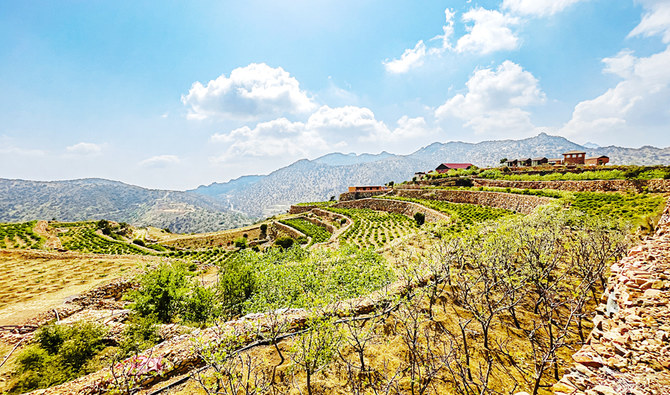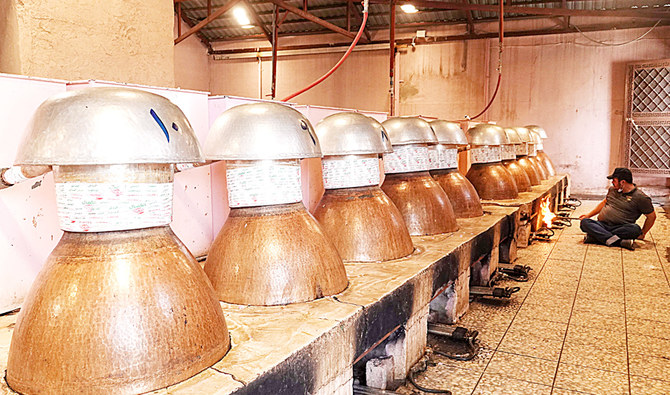TAIF: Throughout the year, rose gardens and farms in Taif are kept well cultivated, waiting for the spring to arrive and welcome visitors with a charming bloom.
In Saudi Arabia, there are two traditional types of pink roses that are widely adored and sold for various purposes, both significant in their smell, cultivation standards, and price. The light blush pink of the Madinah rose is available all through the year, and it grows in cool to warm weather, while the Taif rose, also known as the Jory or Damascus rose, is a seasonal type that grows only during the spring months for 45 to 60 days in cold to cool weather.
Away from the hot desert weather, the city of mountains, located 1,800 meters above sea level, is known for its mild climate, with cool rainy weather in winter and spring, making it an ideal atmosphere for roses to grow.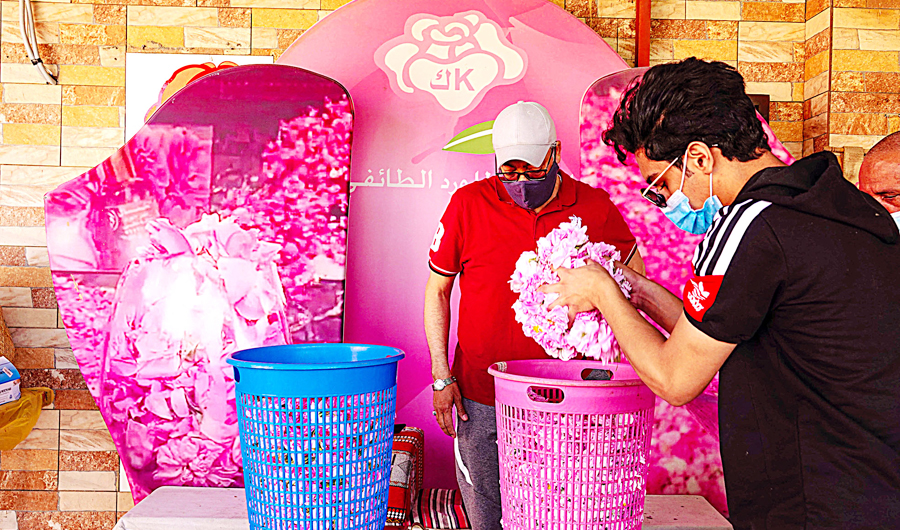
For the next two months, farmers across the city head out to gardens and orchards to harvest the roses in full bloom and place them in sacks moistened with water to keep them fresh. Thousands of farms, gardens and orchards are spread across the mountains of the city and distributed around its terraces.
To understand more about the significance of the Taif rose, Arab News visited one of the most famous rose factories in the city.
FASTFACTS
• In Saudi Arabia, there are two traditional types of pink roses that are widely adored and sold for various purposes, both significant in their smell, cultivation standards, and price.
• The Madinah rose is known for its large light pink tone petals and can be grown all year, in cool to warm weather.
• The Taif rose, also known as Jory or Damascus rose, is a seasonal rose that grows in spring for 45 to 60 days only, and grows in cooler weather. It has a darker tone and a stronger scent, with smaller, heavier petals.
Al-Kamal factory was established in 1831 and is the oldest in the Kingdom. Located in Al-Hada, a neighborhood of the city known for its fascinating natural surroundings, we were met by Khalid Al-Kamal, a seventh generation member of the company, whose love for the pink beauty spans generations.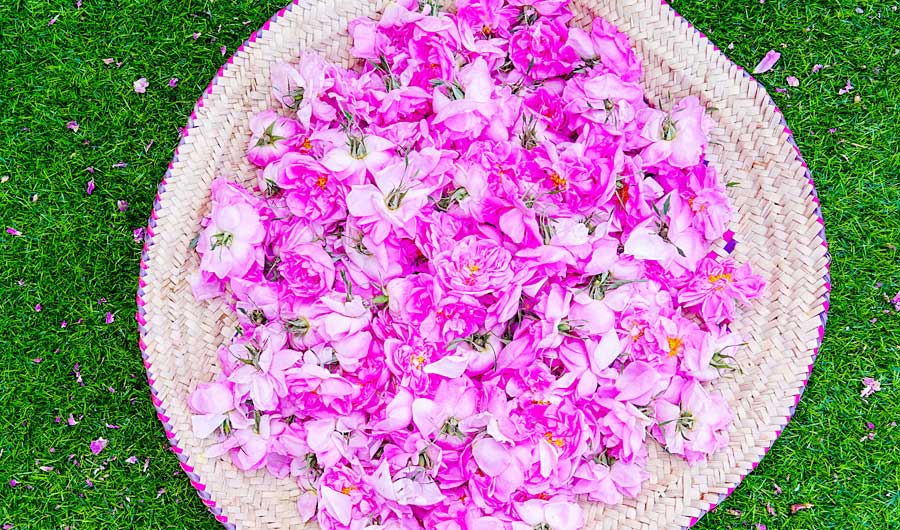
He told Arab News: “It is an inherited career from father to son — from one generation to another — and I am very proud to tell you that I am the seventh generation to inherit this legacy. Working in the field of farming roses requires a lot of delicacy, as the quality of the roses is affected by the soil and weather as well as the method of cultivation. I learned from my forefathers, and now my three sons manage the factory along with a number of workers, some of whom are Saudis.”
Evolution of the rose
It takes each pink rose 10 days to fully bloom; farmers then crop the harvest and pick roses manually in the early morning before sunrise.
“We have 900 rose farms around Taif city, each approximately 5,000 meters wide, producing around 30 million roses during the season,” Al-Kamal said.
When cropping, weighing and processing, Al-Kamal personally supervises the harvest, explaining that “the main stages of counting and weighing the harvest need to be carefully done to assure the process is going as it should be. During the peak of the season we harvest 1.2 million roses a day,” he said.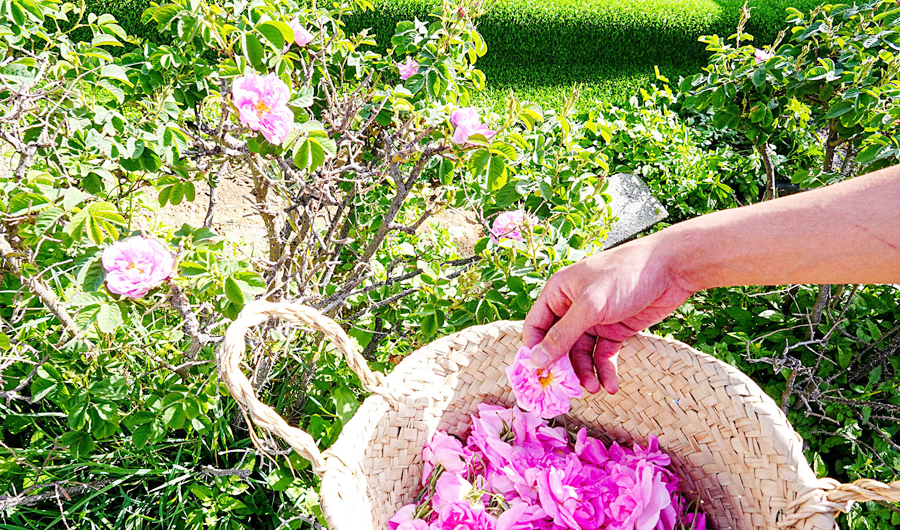
The factory has three main product lines made from Taif roses, including intense rose water used for medical and cosmetic purposes made from 35,000 roses, regular rose water used in food and beverages, made from 20,000 roses, and refined rose water that produces rose oil as a deluxe perfume, made from 45,000 roses.
The three are developed for a variety of other formulas to produce over 70 products made from pink rose extracts.
Past and present
Inside the factory, five brass pots stand next to one another in a small room dating from when the factory first started. “My ancestors used to rely on this room as a rudimentary factory; the pots used to slowly cook under wooden ovens for days. However, after several generations, the factory expanded to take an extra 120 pots with gas ovens. All the old wooden ovens were kept as a reminder.”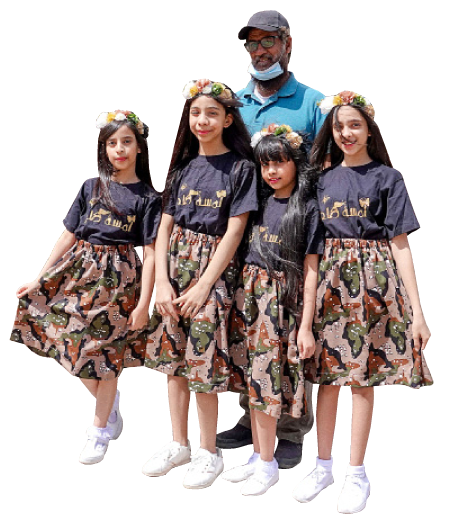
To prepare the products, sacks of thousands of roses are poured into the large 90-liter copper pots, that are later sealed tight for a 9-12 hour distillation process, after which fragrant oil extract can be found floating on the intense rose water surface.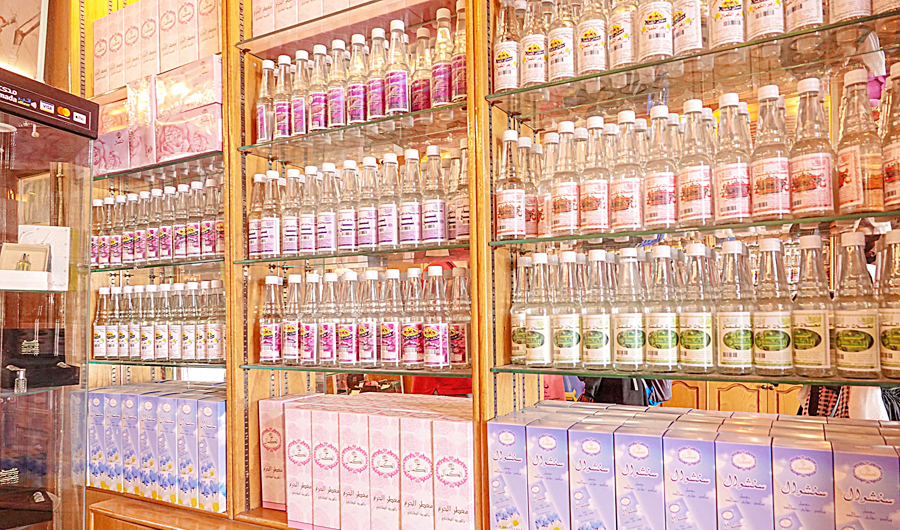
It takes 45,000 roses to make this precious extract, poured into 12ml vials. The scent has citrus and flowery notes, and the price of a vial starts at $400-450 depending on the season.
Each season varies in terms of production, but 2020 was a hard year for the factory, according to Al-Kamal. “We could not make use of the harvest properly last year, but we have high hopes that things would go back to normal this year with the Taif Rose Festival Program ready,” he said.
Despite its setbacks, the factory has a rich pedigree, with a history of dealing with the Kingdom’s elites, from religious institutions to members the royal family such as Prince Turki Al-Faisal and Prince Khalid Al-Faisal.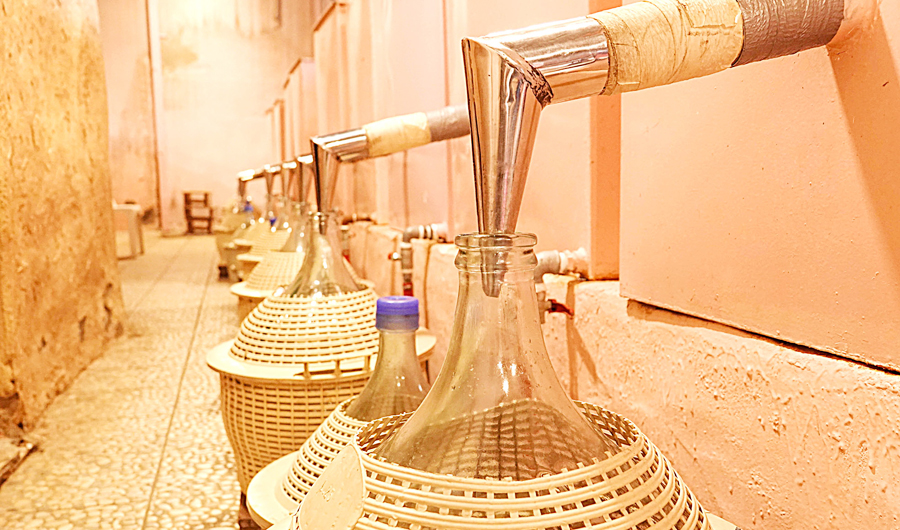
“My grandfather used to receive letters from King Saud (asking him) to collect fragrances from our factory to send to Makkah,” said Al-Kamal. “We also receive requests from the General Presidency of the Grand Mosque and the Prophet’s Mosque to deliver 90 liters of intense rose water, called ‘Al-Aroos’ (the bride), and 50 large perfume vials, to wash the Kaaba with every year.”


